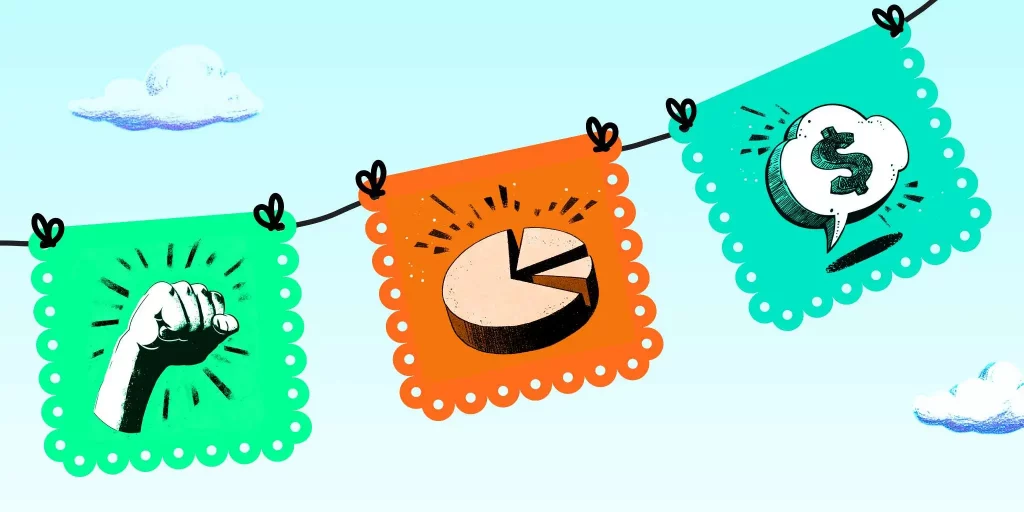Opinion for The Latino Newsletter
We can choose to ignore the economic indicators at our own peril, but there’s no denying it. The United States economy is going to enter a recession, or at the very least a serious crisis. President Trump’s tariff policies have investors, manufacturers, importers, entrepreneurs, and the stock market on edge.
While the unemployment rate has remained relatively steady, other indicators are raising the alarm. The country’s labor market stalled over the summer.
This past quarter (Q2 2025), credit card delinquencies have been increasing. The delinquency rate is nearing levels seen during the 2008 financial crisis. In addition, 10.2% of aggregate student loan debt was 90+ days delinquent, and FHA mortgage rates (typically used by lower-income borrowers and first-time homebuyers) reached 11.03% earlier this year. These were the same alarming economic trends leading up to the 2008 financial crisis.
For U.S. consumers whose purchasing power has been declining, their economic outlook does not inspire economic stability, let alone economic advancement.
Socioeconomic stagnation is a pervasive issue that manifests itself in various forms of hardship and struggle. For Latinos, socioeconomic advancement is a key component of the American Dream, and addressing this complex problem necessitates a focused effort on enacting meaningful cultural and educational transformations within our community.
Such transformations are vital for confronting the underlying factors that drive poverty, exacerbate income inequality, and contribute to the rising prevalence of individuals and families living paycheck to paycheck. By fostering a supportive environment that prioritizes education and cultural empowerment, we can cultivate resilience and create pathways toward greater economic stability and prosperity.
Financial Literacy and Latinos
Financial literacy is a critical dimension of this challenge, which profoundly influences the way money is perceived and managed within Latino culture. We place a high value on a robust work ethic, but that’s not enough.
We all know friends or family who willingly undertake jobs that others may shy away from — laboring long hours for meager wages.
Despite these hardships, we instill a profound appreciation for saving and financial prudence. In our culture, hard work is not just a necessity — it is a revered badge of honor, symbolizing resilience and dedication in the face of adversity.
A compelling cultural theory that influences economic behavior asserts that individuals driven by a strong work ethic are often motivated by the belief that diligent labor is the key to financial success. However, this particular culture frequently lacks the essential financial education that would empower individuals to wisely invest their hard-earned income, leading to sustained revenue streams and long-term financial growth.
In stark contrast, people from diverse cultural backgrounds often view investments as a strategic means of achieving economic prosperity. This difference in perspective highlights the varying approaches to wealth accumulation and financial management across cultures.
This gap was recently identified in a Money Lion study that indicated that only 54% of U.S. Latinos are considered financially literate, compared to 69% of non-Hispanics. The pervasive gap in financial literacy significantly contributes to the economic disparities that exist in our communities.
The glaring absence of financial education acts as a formidable barrier, preventing many Latinos from accessing opportunities for higher-paying jobs and ultimately stifling their potential for upward mobility. This lack of knowledge creates a profound impact, limiting their ability to navigate financial landscapes and achieve the prosperity that remains unreachable.
This is especially concerning, as many individuals within these communities often face limited financial resources to navigate such challenges. A Bankrate study correctly identified the reality that millions of Latino families face. Almost 40% of Latino workers feel they are living paycheck-to-paycheck and facing constant uncertainty about their financial futures.
I believe that if we were equipped with a broader understanding of how the financial ecosystem operates, we could uncover valuable resources, products, and services tailored to their needs, ultimately empowering us to enhance their economic circumstances and build a more secure future.
An Endless Cycle
Many Latino children find themselves ensnared in a relentless cycle, where the struggle of living paycheck to paycheck becomes not just a challenge but a perceived norm and a badge of success.
Within this pattern, the hope for a brighter future flickers for only a handful of individuals who manage to break free, transforming their lives into inspiring narratives of perseverance and resilience.
For those who remain trapped, they become indistinguishable among a sea of diligent workers, perpetuating this generational pattern like an unending echo.
To foster meaningful social and cultural change within the Latino community, we have to embed financial education as a critical part of our households. We must do our part to ensure that our children are well-equipped with the essential knowledge about finances and investing.
However, this can only happen if we acknowledge and overcome our financial struggles and challenges. I often tell people not to brush their financial woes under the carpet. By doing so, people are just avoiding the inevitable and normalizing financial stress as another part of our already difficult lives.
Financial education is going to hurt. Facing our financial reality can be painful, but embracing it can be a transformative experience.
Financial health and wellness touch every aspect of our daily lives. Many people don’t realize this until their financial health compromises an employment opportunity, denies them access to capital or credit, or even denies them housing.
As the dark cloud of economic recession looms, we must prepare for it, and this starts with taking action. Educate yourself, and educate those around you — your future and theirs may depend on it.
Veronica Semler is a distinguished executive with over 30 years of proven leadership experience in the banking and financial sectors, having collaborated with both Fortune 100 companies and government agencies. She employs empathy as a powerful tool to drive transformative change, boldly challenging the status quo and reshaping how business is conducted.
What We’re Reading
Hyundai Raid: From The Guardian, “Hundreds of workers at a factory being built in Georgia to make car batteries for Hyundai and Kia electric vehicles were detained in a huge raid by Immigration and Customs Enforcement (ICE) on Thursday that stopped construction.”
The Latino Newsletter welcomes opinion pieces in English and/or Spanish from community voices. Submission guidelines are here. The views expressed by outside opinion contributors do not necessarily reflect the editorial views of this outlet or its employees.





